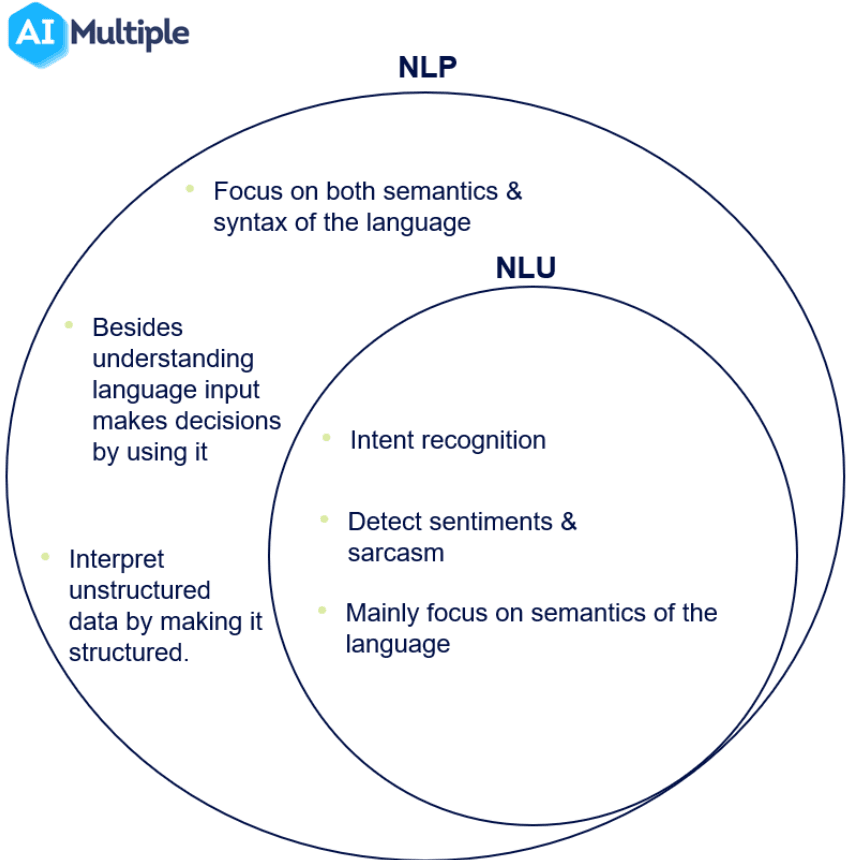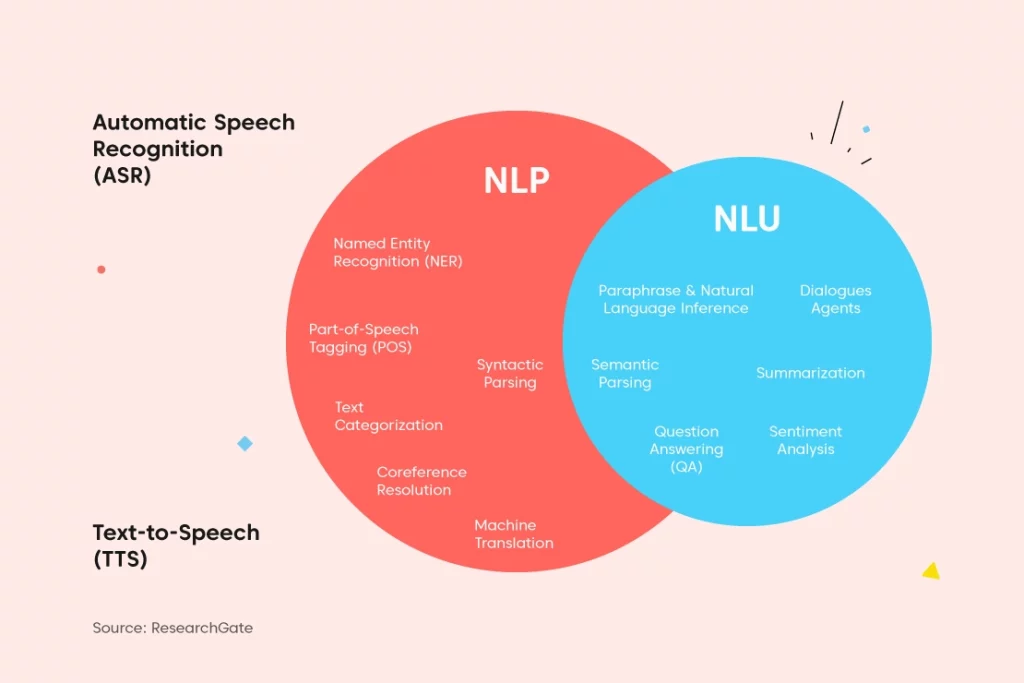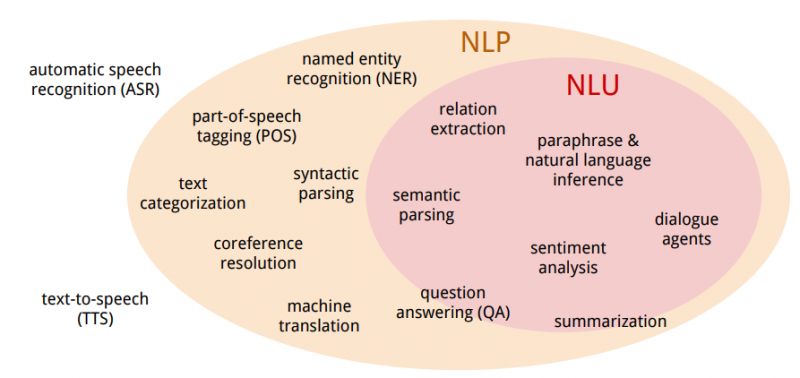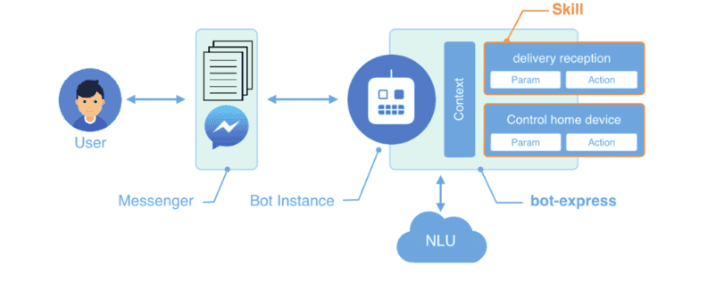The importance of NLU and NLP has grown as technology and research have advanced, and computers can now analyze and perform tasks on a wide range of data.
However, the whole picture changes when discussing human language since it is confusing and imprecise.
It is more difficult to process human language than numbers. To comprehend human language, the system must comprehend content, sentiment, and purpose.
Natural Language Understanding and Natural Language Processing are crucial in interpreting human language in this context.
Because they both deal with Natural Language, these names are sometimes interchangeable. Their purpose is to deal with human language, yet they are different.
The global natural language processing (NLP) market is expected to reach $37.5 billion by 2026, growing at a CAGR of 20.4% from 2021 to 2026.
The natural language understanding (NLU) market is expected to reach $12.8 billion by 2026, growing at a CAGR of 21.8% from 2021 to 2026.
What is the difference between NLU and NLP? To understand this, we must first define each phrase and clarify ambiguity.
This blog discussed the differences between NLU and NLP and how to use them.
What are NLU and NLP?
NLP involves the study and manipulation of human language by machines. It encompasses various tasks, such as text classification, named entity recognition, and machine translation.
On the other hand, NLU focuses specifically on the understanding and interpretation of human language. It aims to comprehend the meanings, context, and intentions behind the words and phrases used in communication.

Evaluating the Applications of NLU and NLP across Industries
Both NLU and NLP have found immense applications across various industries and sectors.
NLP has been instrumental in streamlining customer support with chatbots, improving search engines with better query understanding, and enabling voice assistants like Siri and Alexa.
NLU, on the other hand, has played a crucial role in personalized education and tutoring, healthcare communication, sentiment analysis, and virtual reality experiences.
Get your own deep trained Chatbot with BotPenguin, Sign Up Today!
BotPenguin provides Chatbot creation for different social Platforms-
NLU vs NLP: Key Differences and Similarities
Now, let's dive into the heart of the matter and explore the nuances between NLU and NLP.

Goals and Objectives
NLU is focused primarily on understanding and interpreting human language, while NLP aims to process and manipulate language in more general terms.
NLU goes beyond surface-level analysis and attempts to comprehend the contextual meanings, intents, and emotions behind the language.
Techniques
NLP relies on many techniques, including syntactic parsing, keyword extraction, and statistical modeling. It often involves a more structured and rule-based approach.
On the other hand, NLU employs techniques such as machine learning, deep learning, and semantic analysis better to grasp the subtleties of language and its meaning.
Similarities and Overlaps
Although NLU and NLP have distinct focuses, there are areas where they overlap. Understanding language is at the core of both NLU and NLP.
They share common techniques and algorithms like text classification, named entity recognition, and sentiment analysis. Both disciplines seek to enhance human-machine communication and improve user experiences.
Importance of Understanding the Distinction between NLU and NLP
Understanding the distinction between NLU and NLP is crucial. It allows us to appreciate the diverse applications and potentials of language processing.
By recognizing the goals and techniques employed in each field, we can harness their power more effectively and explore innovative solutions to language-related challenges.
Exploring the Boundless Applications of NLU and NLP
Are you ready to dive into the incredible world of NLU and NLP applications?

Let’s explore how NLU (Natural Language Understanding) and NLP (Natural Language Processing) profoundly impact different domains.
From virtual assistants to sentiment analysis, we'll uncover how these fascinating technologies are shaping the future of language processing.
Applications of NLU and NLP in Virtual Assistants, Chatbots, and Conversation Agents
Virtual assistants and chatbots have become an integral part of our lives, and that's where NLU and NLP truly shine.
These technologies enable machines to understand and respond to natural language, making interactions with virtual assistants and chatbots more human-like.
Using NLU, these tools can accurately interpret user intents, extract relevant information, and provide personalized and contextual responses.
NLP’s Application in Text Analysis, Topic Modeling, and Sentiment Analysis
Have you ever wondered how large volumes of text can be harnessed for valuable insights?
That's where NLP comes in!
NLP techniques are used to perform text analysis, which involves extracting important information from text data.
Topic modeling is another incredible application that allows us to discover hidden patterns and themes in vast collections of text documents.
Additionally, sentiment analysis uses NLP methodologies to determine the sentiment and polarity expressed in text, providing valuable insights into customer feedback, social media sentiments, and more.
NLU and the Automation of Content Production and Translation
Content production and translation can be time-consuming and resource-intensive tasks. However, NLU has revolutionized these processes.
Thanks to NLU-powered content generation, machines can automatically create high-quality content, saving precious time for content creators.
NLU also plays a significant role in translation by helping machines understand the nuances of language and accurately convey meaning from one language to another.
This has resulted in more efficient and accurate translation services, bridging the gap between different cultures and languages.
Natural Language Understanding for Conversational AI
Conversational AI creates seamless and interactive conversations between humans and machines. NLU is a key component that drives the effectiveness of conversational AI systems.

By analyzing and understanding user intent and context, NLU enables machines to provide intelligent responses and engage in natural and meaningful conversations.
Whether it's a chatbot, virtual assistant, or voice-enabled device, NLU empowers these conversational AI systems to understand and respond to human queries and commands.
Sentiment Analysis and Opinion Mining
Human emotions and opinions are complex, but we can gain insights into sentiments and opinions expressed in text data with NLP.
Sentiment Analysis (SA) and Opinion Mining (OM) are crucial techniques for understanding and analyzing individuals' emotions, attitudes, and opinions.

NLP methodologies allow us to automatically classify and determine the sentiment and polarity of text, helping businesses understand customer satisfaction, public sentiment, and even political opinions.
The Promising Future of NLU and NLP
Let’s explore the future of NLU (Natural Language Understanding) and NLP (Natural Language Processing).
Examining Future Advancements in NLU and NLP
The field of NLU and NLP is rapidly advancing, and with new technologies emerging every day, the future looks promising.
Advancements in conversational AI and natural language generation (NLG) are at the forefront.
Chatbots and virtual assistants are becoming more intelligent, enabling the development of personalized and engaging customer service interactions.
Natural language generation (NLG) techniques are also used to create high-quality content, significantly aiding content creation.
Conclusion
In conclusion, NLU and NLP technologies are on the cusp of transforming how we interact with machines and automate tasks.
NLP and NLU are important words when designing a machine that can readily interpret human language, regardless of its defects. However, understanding human language is critical for understanding the customer's intent to run a successful business.
Developers must grasp the subtle difference between these terms to create machines capable of human-like interactions.

